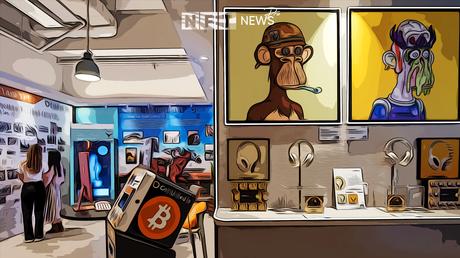
Industries are being transformed by the idea of Web3, a new version of the World Wide Web that incorporates ideas like decentralization, blockchain technology, and token-based economics. The telecommunications sector has also seen the effects of its use cases. Leading telecom companies are investigating the potential for purchasing, sharing, and reselling internet services as NFTs since it might revolutionize the game.
What role do NFTs play in the delivery of internet services?
Non Fungible Tokens offer a variety of use cases by utilizing the underlying blockchain technology. NFTs have been regularly employed in recent years to demonstrate ownership of digital art. Developers have continued to investigate how to provide services and give each individual token inherent value by utilizing the cryptographic properties of NFTs.
As a result of these improvements, NFTs can now be exchanged for cryptocurrencies, community airdrops, internet access, or access to events. New opportunities in traditional markets and Decentralized Finance (DeFi) are made possible by these new possibilities.
How does 3air make it possible for NFTs to connect to the internet?
3air wants to change the world by offering its own broadband internet services and working with other internet service providers to make sure that everyone has the same access to opportunities. Currently, about 78% of the African population does not have stable access to the internet. The platform uses its own technology to give people in major African cities broadband internet access without laying physical cables (a traditional barrier). The platform will also use blockchain technology to give people who didn’t have bank accounts before access to banking services.
NFTs are unique, can’t be split up, can be transferred, and can prove scarcity. The popularity of NFT marketplaces shows how useful they can be. 3air will use NFT technology to prove the identity of a user or device and add transferability to connectivity tokens.
Because of its uniqueness, it will make it possible for users to buy, share, and resell internet services in a new marketplace. When it works right, it will make a peer-to-peer market where NFTs can be used to trade internet connectivity tokens across borders. The connections will make sure that everyone has access to a cheap, decentralized mesh internet.
Depending on how much money it has, 3air will add new locations every four months, starting with Democratic Republic of Congo, Ethiopia, Nigeria, Guinea, Congo Brazzaville, Ivory Coast, Ghana, Sudan, Mozambique, Zimbabwe, Kenya, and Senegal.
NFTs are unique, so they are used to show who owns digital art or who belongs to a community. 3air NFTs will be built into hardware so that each unique token can be used to identify a specific piece of hardware in the ecosystem.
There are several ways to use this NFT category. For example, the person in charge of a hardware device will have to stake or embed a certain number of 3air tokens, which have a monetary value.
If the person in charge does something bad, their staked tokens are cut. Users can also trade NFTs on markets outside of the blockchain to show a change of ownership. All of these trades can be tracked on the blockchain. Device NFTs will have the hardware’s image, serial number, and other information needed to connect to the 3air ecosystem.
NFTs for connectivity
To provide access to the internet, connectivity NFTs work in conjunction with device NFTs. They can be bought, sold, and mined by users. Each NFT will include a value tag in USD and information on the kind and location of the needed internet services. When a connectivity NFT is turned on, it benefits the user
Connectivity NFTs can have a time limit, which means they lose their value when the time limit is up. The user and ecosystem can grow with the help of the NFT and transaction records. The NFTs can be turned off at any time and moved to different devices.
Other ways NFTs could be used in 3air
NFTs give the telecommunications industry a new kind of flexibility. There are a lot of different things that could happen, and secondary telecom service markets are expected to start trading and exchanging value at levels that have never been seen before. The growth can be seen as the next step in the development of mobile internet bundles, which were also made popular by African communities.
Blockchain technology will get rid of the need for third parties. This will make it easier to start new businesses and give money to good causes by sending connectivity NFTs to the Device NFTs of schools, hospitals, or communities that need money.
Leave this field empty if you're human: